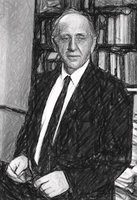GDP
 "I was recently in Pennsylvania at the site of a zinc factory whose airborne wastes were formerly so laden with pollutants that they denuded an entire mountainside . . . From a GDP perspective, however, this was wonderful. First there was the gain to the economy from all the zinc the factory had refined and sold over the years. Then there was the gain from the tens of millions of dollars the government must spend to clean up the site and restore the mountain. Finally, there will be a continuing gain from medical treatments for workers and townspeople made chronically ill by living amid all those contaminants. In terms of conventional economic measurement, all of this is gain, not loss . . . In short, the more recklessly we use up natural resources, the more the GDP glows." Bill Bryson, Notes from a Big Country.
"I was recently in Pennsylvania at the site of a zinc factory whose airborne wastes were formerly so laden with pollutants that they denuded an entire mountainside . . . From a GDP perspective, however, this was wonderful. First there was the gain to the economy from all the zinc the factory had refined and sold over the years. Then there was the gain from the tens of millions of dollars the government must spend to clean up the site and restore the mountain. Finally, there will be a continuing gain from medical treatments for workers and townspeople made chronically ill by living amid all those contaminants. In terms of conventional economic measurement, all of this is gain, not loss . . . In short, the more recklessly we use up natural resources, the more the GDP glows." Bill Bryson, Notes from a Big Country.Economist Simon S. Kuznets was born on this day in 1901 in Kharkov, Ukraine.
With funding from the U.S. National Bureau of Economic Research, Kuznets was the first economist to compute national income (gross national product, now boiled down as gross domestic product, or GDP) in a systematic fashion, breaking it down by industry, finished product and use, and assisting the U.S. Department of Commerce in standardizing the measurement of GDP. He won the 1971 Nobel Prize in Economics for his empirical work on economic growth, which showed, among other things, that in poor countries economic growth increased the disparity between rich and poor, while in wealthier countries economic growth seemed to decrease that disparity. He died on July 9, 1985.
Labels: Conservation, Economics





0 Comments:
Post a Comment
Subscribe to Post Comments [Atom]
<< Home